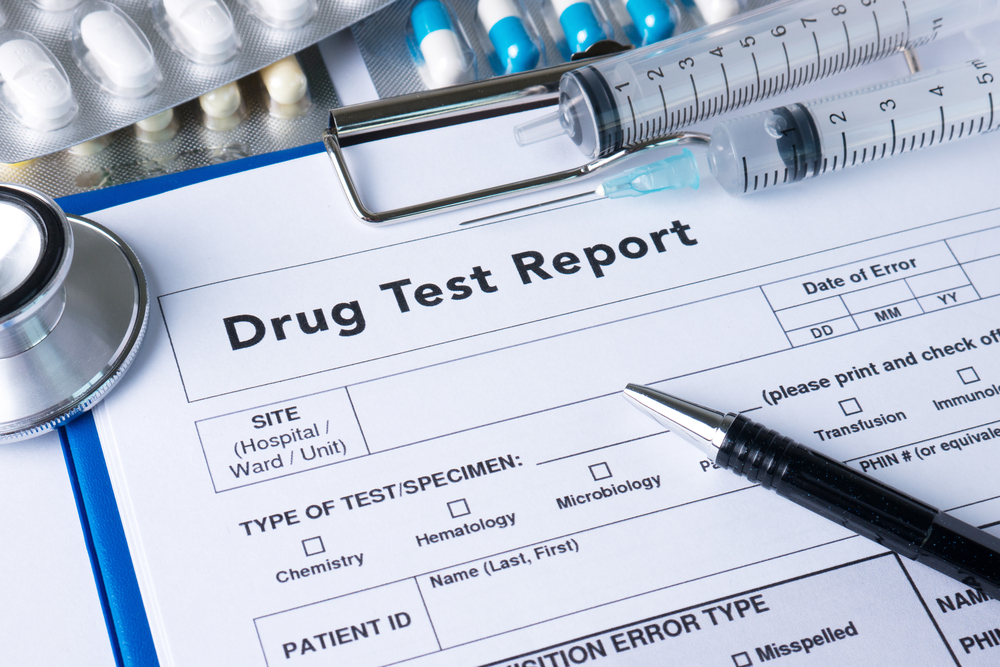
Drug Allergy Treatment
Drug allergies occur when the immune system reacts to specific medications, causing various symptoms ranging from mild to severe. Accurate diagnosis and appropriate treatment are essential in managing drug allergy rashes and preventing future reactions. Penn Medicine Becker ENT & Allergy in New Jersey and Philadelphia provides evaluation for patients with drug allergies, focusing on identifying the specific allergens and providing a personalized treatment plan for long-term management.
- Understanding Drug Allergens
- Types of Drug Allergies & Symptoms
- Testing for Drug Allergies
- Identifying the Source of Your Drug Allergy
- Chronic Treatment Plans for Drug Allergy Patients
- Medication Alternatives for People with Drug Allergies
- Preventive Measures to Reduce Risk of Drug Reactions
- Managing Reactions and Long-Term Care
- Preventing Reoccurrences of Allergic Reactions
- Frequently Asked Questions about Drug Allergy
Understanding Drug Allergens
Drug allergens are substances that the body’s immune system identifies as foreign and detrimental to health. Common drug allergens include medications for high blood pressure, chemotherapy drugs, antibiotics such as penicillin, and nasal sprays. Drug allergies can occur when the immune system mistakenly reacts to a substance in the medication or medication itself.
Health care providers often use skin testing and blood tests to identify whether a patient is allergic to a certain medication. In skin testing, small amounts of the allergen are placed on the skin and monitored for an allergic reaction (such as hives or swelling). Blood tests measure levels of antibodies known as immunoglobulin E (IgE) which indicate an allergic response.

When exposed to an allergen, the body responds by releasing histamine which causes allergic symptoms including itching, rash, or sneezing. Histamine also affects various other areas of the body such as blood vessels, airways, digestive tract, and muscles leading to further effects such as increased heart rate and low blood pressure. In severe cases, anaphylactic shock may occur due to release of too much histamine into the bloodstream resulting in difficulty breathing and dizziness.
The effects of drugs vary depending on individual susceptibility but some common adverse reactions include rash, itching, abdominal pain, or nausea. Treatment often involves avoidance of the allergen whenever possible; however in some cases it may be necessary to take alternative medications with similar effects that do not cause any reaction. For long-term management it is important for patients with drug allergies to work closely with their health care provider in order to identify triggers and prevent recurrences of allergic reactions.
Types of Drug Allergies & Symptoms
Drug allergies can manifest in various forms, durations, and severity, with allergy symptoms ranging from mild itching to life-threatening conditions such as anaphylaxis.
Antibiotic Allergies
Antibiotic allergies, particularly those related to penicillin and sulfa drugs, are among the most common drug allergies. Symptoms of antibiotic allergies can vary and may include drug allergy rash, hives, itching, facial or lip swelling, and difficulty breathing. In more severe cases, an anaphylactic reaction may occur, which is a life-threatening medical emergency requiring immediate attention.
Nonsteroidal Anti-Inflammatory Drug (NSAID) Allergies
Nonsteroidal Anti-Inflammatory Drug (NSAID) allergies are another prevalent type of drug allergy. These allergies can cause symptoms similar to those experienced with antibiotic allergies, including skin rash, itching, and swelling. Patients may also experience respiratory symptoms, such as wheezing, shortness of breath, and chest tightness. NSAID allergies are particularly concerning because these medications, including ibuprofen, naproxen, and aspirin, are widely used at home for pain relief and fever reduction.
Penicillin Allergies
Penicillin allergies are the most common cause of drug allergies, affecting a significant number of patients. Symptoms of penicillin allergies can range from mild to severe, including skin rash, itching, hives, facial or lip swelling, and difficulty breathing. As a result, a severe reaction may occur, requiring immediate medical intervention. It is very important to inform healthcare providers of a known penicillin allergy to avoid potentially life-threatening reactions, as they can then prescribe alternative antibiotics that are less likely to cause an allergic response.
Aspirin Allergies
While most people can safely take aspirin, some individuals may have an allergy to it. In some cases, individuals who are allergic to aspirin may still be able to take other NSAIDs (above) without experiencing an allergic reaction.
The reason why some individuals can be allergic to aspirin but still tolerate other NSAIDs is due to the chemical structure of these drugs. While aspirin belongs to a group of NSAIDs known as salicylates, other NSAIDs such as ibuprofen, naproxen, and diclofenac belong to a different chemical class. These drugs have a different chemical structure from aspirin, and may not trigger an allergic reaction in individuals who are allergic to aspirin.
Sulfa Drug Allergies
Sulfa drug allergies are another common type of drug allergy. These allergies can cause various symptoms, including skin rash, itching, fever, headache, and difficulty breathing. Sulfa drugs can occasionally cause severe and life-threatening reactions. Since they are used to treat a wide range of infections and conditions, it is essential for healthcare providers to be aware of any known sulfa drug allergy and recommend an alternative treatment.

Testing for Drug Allergies
Testing for drug allergies is important in order to identify the type of reaction that may occur when a certain drug is taken. This can help healthcare providers prescribe alternative medications that are less likely to cause an allergic reaction. Testing for drug allergies typically involves skin testing, blood tests, or both. Skin testing is usually done first because it is more accurate and provides results faster than blood tests. During allergy skin testing, a small amount of the suspected drug will be injected into the skin and observed for signs of a reaction. If a positive reaction occurs, such as swelling or redness at the injection site, this indicates an allergic response to the drug.
In addition to skin testing, blood tests may also be used to detect potential drug allergies. These tests can measure levels of IgE antibodies in the bloodstream, which are released when an individual has an allergic reaction. Blood tests can also provide information about other medical conditions or potential side effects associated with taking certain drugs, such as runny nose and sore throat (allergic rhinitis) or loss of consciousness due to severe reactions like anaphylaxis. Ultimately, any test results should be discussed with a healthcare provider before proceeding with treatment in order to ensure safety and proper medical care.
Identifying the Source of Your Drug Allergy
In order to identify the source of your drug allergy, it is important to be aware of any common medications you may take as well as any over-the-counter medications or supplements you may have used in the past that could have caused a reaction. In addition, if you experience severe symptoms such as difficulty breathing or facial swelling, seek medical attention immediately at the nearest emergency room. Your doctor will perform a physical examination and review your drug eruption and medical history before diagnosing an adverse drug reaction.

Chronic Treatment Plans for Drug Allergy Patients
Chronic treatment plans for drug allergy patients involve first identifying the correct drug that is causing the reaction. In cases of emergency conditions due to an adverse drug reaction, epinephrine auto-injectors should be used in order to reduce symptoms such as difficulty breathing or facial swelling. Anti-allergy drugs can also be used to help reduce inflammation and other body reactions, while antihistamines may also be used for milder allergic reactions.
Medication Alternatives for People with Drug Allergies
Finding a suitable alternative medication is crucial for patients with drug allergies to ensure they receive the necessary treatment without triggering an allergic reaction. Healthcare providers can recommend alternative medications based on the patient’s specific allergy and medical needs. For example, patients with a penicillin allergy may be prescribed a different class of antibiotics, while those with an NSAID allergy might be advised to use acetaminophen for pain relief.
Preventive Measures to Reduce Risk of Drug Reactions
Preventing drug reactions is an essential aspect of managing drug allergy rashes. To avoid being prescribed or dispensed medications containing the allergen, patients should inform all healthcare providers, including pharmacists, about their drug allergies. Wearing a medical alert bracelet or carrying a wallet card with allergy information can also help ensure that medical professionals are aware of the allergy in case of an emergency.
Managing Reactions and Long-Term Care
It is important to follow the medication instructions carefully to minimize the risk of a reaction. This includes taking the medication at the correct dose and frequency, and not exceeding the recommended dosage.
If you are taking a medication that has previously caused a reaction, it is important to monitor for symptoms of a reaction. If you experience any symptoms, stop taking the medication and contact your healthcare provider to make any necessary adjustments to the treatment plan.
Schedule your consultation
Preventing Reoccurrences of Allergic Reactions
Preventing the recurrence of allergic reactions is crucial for patients with drug allergies. This may involve closely following the prescribed treatment plan, avoiding the allergy-causing drug, and being vigilant about informing healthcare providers of the allergy.
In some cases, drug desensitization may be used if no suitable alternative to the allergy-causing drug is available. This process involves gradually increasing exposure to the drug under medical supervision to help the patient’s immune system tolerate the medication without triggering an allergic reaction.

Pick one of our convenient locations
for your Drug Allergy Treatment
